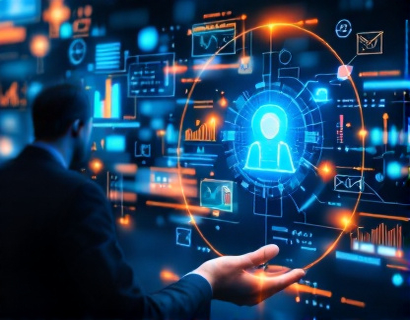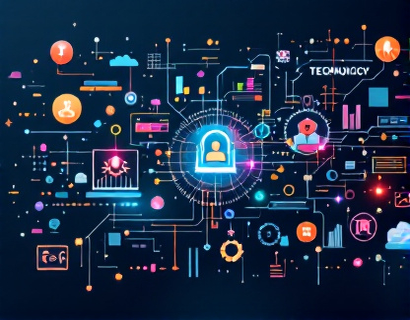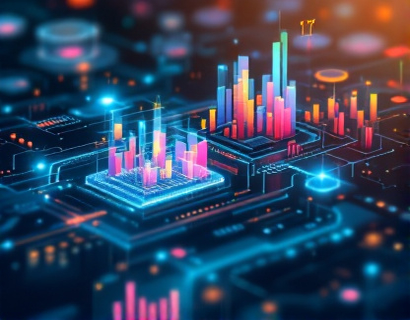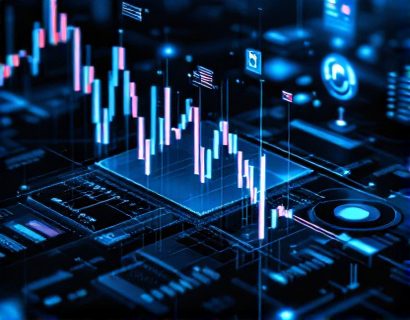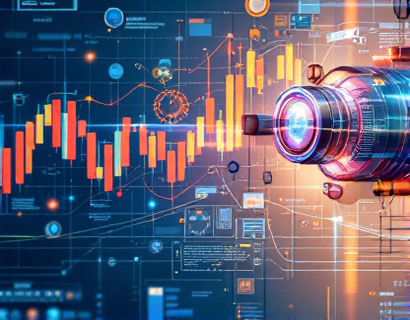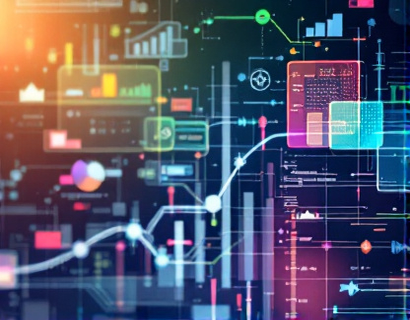Revolutionizing App Solutions: The Synergy of Crypto and AI
The integration of cryptocurrency and artificial intelligence is ushering in a new era of digital innovation, transforming the way we interact with applications and services online. This convergence of blockchain technology and machine learning is creating solutions that are not only more efficient and secure but also profoundly enhance user experiences. As we delve into this transformative landscape, it's essential to understand the foundational technologies driving this revolution and their practical applications.
Foundations of Blockchain and Artificial Intelligence
Blockchain technology, at its core, is a decentralized ledger that ensures transparency, security, and immutability in transactions. It operates on a network of nodes, each maintaining a copy of the ledger, which is updated through consensus mechanisms. This decentralized nature eliminates the need for intermediaries, reducing costs and increasing trust among users.
Artificial intelligence, on the other hand, encompasses a range of technologies designed to simulate human intelligence in machines. These include machine learning, natural language processing, and computer vision. AI's ability to analyze vast amounts of data, learn from patterns, and make decisions autonomously makes it a powerful tool for enhancing digital experiences.
The combination of these two technologies creates a synergy that addresses some of the most pressing challenges in digital interactions. Security, efficiency, and personalization are key areas where blockchain and AI can work together to revolutionize app solutions.
Enhancing Security with Blockchain and AI
Security is a paramount concern in the digital world, and the integration of blockchain and AI offers robust solutions. Blockchain's inherent security features, such as cryptographic hashing and consensus algorithms, provide a solid foundation. AI can further bolster this by detecting and mitigating threats in real-time.
Machine learning algorithms can analyze transaction patterns to identify anomalies and potential fraud. By continuously learning from new data, these algorithms become more adept at recognizing and preventing malicious activities. This proactive approach to security ensures that user data remains protected, fostering trust and confidence in digital platforms.
Moreover, AI-driven identity verification systems can enhance user authentication processes. By leveraging biometric data and behavioral analytics, these systems can provide multi-factor authentication that is both secure and user-friendly. This not only reduces the risk of unauthorized access but also streamlines the user onboarding process.
Optimizing Efficiency Through Smart Contracts and AI
Smart contracts, self-executing contracts with the terms directly written into code, are a cornerstone of blockchain technology. When combined with AI, smart contracts can become even more powerful and efficient. AI can automate the execution of smart contracts based on predefined conditions, ensuring that transactions are processed accurately and promptly.
For instance, in supply chain management, AI can monitor and analyze data from various sources to trigger smart contracts when specific conditions are met, such as the arrival of goods at a warehouse. This automation reduces manual intervention, minimizes errors, and accelerates processes, leading to significant efficiency gains.
Additionally, AI can optimize the performance of blockchain networks themselves. By predicting network congestion and adjusting resource allocation dynamically, AI can ensure that transactions are processed smoothly and quickly. This is particularly important for applications requiring high throughput, such as financial services and gaming platforms.
Personalization and User Experience
One of the most exciting aspects of combining blockchain and AI is the potential for highly personalized user experiences. AI algorithms can analyze user behavior and preferences to tailor content and services to individual needs. This level of personalization not only enhances user satisfaction but also increases engagement and loyalty.
In the context of decentralized applications (dApps), blockchain ensures that user data is stored securely and transparently. AI can then use this data to create personalized recommendations, notifications, and interactions. For example, a decentralized social media platform can use AI to curate a feed based on a user's interests and interactions, all while maintaining control over their data.
Furthermore, AI-powered chatbots and virtual assistants can provide 24/7 support, answering queries and assisting users in real-time. These AI-driven interfaces can operate on blockchain-based platforms, ensuring that user interactions are secure and private. The combination of AI's conversational capabilities and blockchain's data integrity creates a seamless and trustworthy user experience.
Decentralized Finance and AI-Driven Investments
Decentralized finance (DeFi) is another area where blockchain and AI are making significant impacts. DeFi platforms offer financial services such as lending, borrowing, and trading without traditional intermediaries. AI can enhance these services by providing sophisticated analysis and predictive insights.
AI algorithms can analyze market trends, assess risks, and optimize investment strategies. For instance, AI-driven bots can execute trades based on real-time data and predefined criteria, executing complex strategies with precision and speed. This not only democratizes access to financial services but also improves the efficiency and effectiveness of investment decisions.
Moreover, AI can help in detecting and mitigating market manipulation and fraud in DeFi platforms. By monitoring transactions and user behavior, AI can identify suspicious activities and alert users or administrators, ensuring a fair and transparent trading environment.
Challenges and Considerations
While the potential of blockchain and AI in app solutions is vast, there are several challenges that need to be addressed. Scalability remains a significant issue for blockchain technologies, as many networks struggle to handle high volumes of transactions. AI algorithms, particularly those requiring extensive training, also demand substantial computational resources.
Interoperability between different blockchain platforms and AI systems is another challenge. Ensuring that these technologies can work seamlessly together is crucial for creating a cohesive and user-friendly experience. Standardization and collaboration among developers and organizations are essential to overcome these hurdles.
Regulatory considerations also play a vital role. As blockchain and AI technologies evolve, regulatory frameworks must adapt to ensure compliance and protect users. Clear guidelines and policies can help foster innovation while maintaining ethical standards.
Future Prospects
The future of app solutions at the intersection of blockchain and AI is promising. As technology continues to advance, we can expect more sophisticated and integrated systems that further enhance user experiences. The convergence of these technologies will likely lead to the development of new use cases and applications across various industries.
For instance, in healthcare, blockchain can ensure the secure and private sharing of medical records, while AI can analyze this data to provide personalized treatment recommendations. In the realm of gaming, blockchain can create truly decentralized and fair gaming environments, with AI enhancing the gameplay experience through dynamic content generation and AI-powered NPCs.
In conclusion, the fusion of cryptocurrency and artificial intelligence is revolutionizing app solutions, offering unprecedented levels of security, efficiency, and personalization. As these technologies continue to evolve, they will play a pivotal role in shaping the digital landscape, providing users with seamless, intelligent, and trustworthy experiences.



